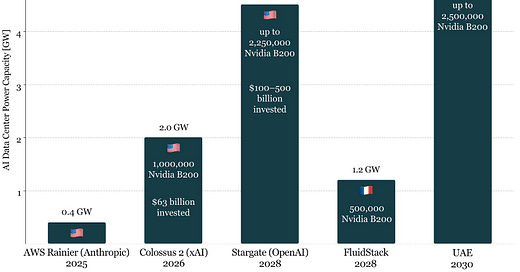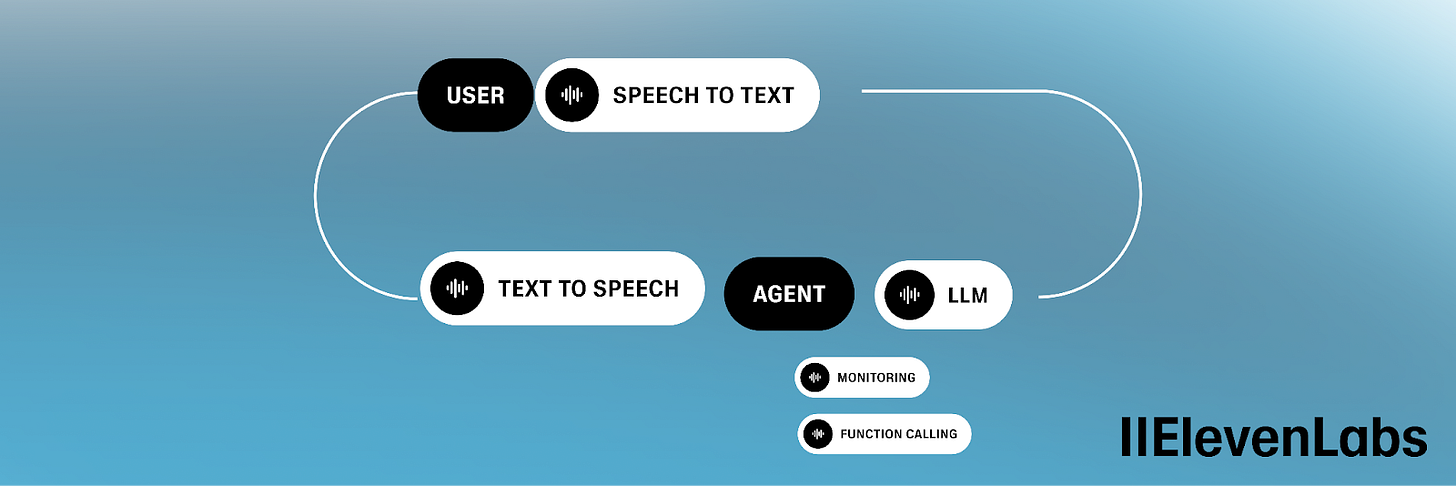🔮 The Sunday edition #524: Iterative AI; the new shape of HR; optimism & future; Neuralink, dancing robot & stablecoins irl++
An insider’s perspective on AI and exponential technologies
Hi, it’s Azeem. Today, we explore how AI’s true power isn’t in models but in systems. DeepMind’s AlphaEvolve and OpenAI’s Codex show the shift to intelligent loops of testing and feedback, where algorithms run thousands of options, learn from what works and compound their intelligence. Meanwhile, the divide grows between AI-optimistic societies and the hesitant, with talent and investment flowing to those who refuse to wait. Let’s dive in!
Today’s edition is brought to you by our sponsor, ElevenLabs – the complete AI Audio Developer platform. Build low-latency AI voice agents that sound human and can handle unpredictable conversations in the noisiest environments. Get started free.
Iterative intelligence
DeepMind’s AlphaEvolve is a milestone. It shows AI progressing from one-shot model outputs to self-improving systems delivering provably correct, real-world algorithms: an “algorithm breeder”. AlphaEvolve spawns thousands of code variants, benchmarks them, breeds the winners and repeats. Result: it reclaims 0.7% of Google’s global compute, shaves 1% off training Google’s core Gemini AI models and beats a 56-year matrix-math record (48 vs 49 multiplies).
Model quality is now only the starting point; orchestration loops that validate, filter, and compound outputs become the competitive moat. This reframes the frontier from “who has the biggest model?” to “who can run the fastest closed-loop experimentation stack?” This matters because improving model quality is cumbersome. Iterative loops are nimbler, conferring a new source of advantage.
Caveat: success requires a cheap, deterministic evaluator, so extending this to real-world domains might be far from straightforward.
OpenAI’s Codex agent follows a similar playbook. The agent is designed to automate software development, using sandboxed tasks, real-world feedback, and continual self-improvement. Progress is now compounded in validated loops, not raw model weight.
Department of human and algorithmic resources
Moderna, the biotech, is merging its HR and tech functions into a single command. This flips the old assumption that people are the default unit of production and makes task architecture the main driver of cost, speed, and compliance. The core question is, “Which workflows can GPTs handle today, and which human capabilities are still scarce?”
The combined “Chief People & Digital Technology Officer” role signals that future executives must be fluent in both organisational design and AI system engineering. Firms that fail to build this hybrid competence will struggle to compound AI gains or safeguard culture as automation accelerates.
Despite record AI revenue, Microsoft has trimmed 3% of its white-collar workforce to free up GPU capex, while Klarna, after boasting that a chatbot replaced seven hundred customer service agents, is rehiring humans to refill experience gaps. Both these examples support Moderna’s case that overall firm capability is a function of both people and technology and needs to be considered as such.
The geographies of AI
According to an IPSOS survey last year, eight in ten Chinese citizens say they’re hopeful about what AI will bring, while barely a third do in the United States. It’s easy to imagine that having an enthusiastic citizenry is a tailwind to AI development.
The stark reality is that AI is clearly going to be the foundational 21st-century technology. Being more nervous than excited about it surely just translates into a deep pessimism about the future. Not a good sign.
The UAE is turning its optimism into a physical footprint: building the largest AI datacenter on Earth, a five-gigawatt campus that dwarfs every other announced project.
Optimism begets action and sustained action is the only path to abundance; you do not decode proteins, create carbon-free energy or rewrite code at human-level speed unless you believe it’s possible and keep building while others pause.
I discussed the geopolitics of land grabs in sovereign compute with RAND analyst,
.Elsewhere
Researchers have showed for the first time how to store three-state (“qutrit”) and four-state (“ququart”) quantum bits in a single superconducting device and keep them alive with error-correction. This could bring about denser, more hardware-efficient quantum computers.
Baidu is in talks to launch robotaxis in Europe.
Neuralink’s third patient, who has ALS, is controlling a computer by thought, improving communication and quality of life compared to previous eye-tracking technology.
Mastercard launches payment cards that allow users to pay in stablecoins.
An octopus-inspired soft robot works with no wires or processor – just suction and fluid flow.
An Oxford study shows people regain weight after stopping GLP-1 drugs.
xAI now publishes Grok’s system prompts after someone forced it to talk about “white genocide”.
FarSight, a new AI system, identifies people by gait and body shape from hundreds of feet away.
A baby was cured of a rare disorder using personalized gene editing – a world first.
Tesla Optimus’ is learning to dance.
Thanks for reading!
Today’s edition is sponsored by ElevenLabs.
ElevenLabs is powering human-like voice agents for customer support, scheduling, education and gaming. With server & client side tools, knowledge bases, dynamic agent instantiation and overrides, plus built-in monitoring, it’s the fastest way to launch conversational experiences. Get started free.





